Following a media feeding frenzy in the wake of an FDA Panel on SSRIs in Pregnancy – see Unsafe Safety Systems – another feeding frenzy erupted with an HHS (Health and Human Services ) statement that it was reviewing the use of Tylenol in Pregnancy and possible links to Autism.
This post engages with both of these frenzies. It is partnered with an ideally read first post on RxISK Health News Reviews SSRIs and FDA which features another post FDA’s Makary stacks the deck with conflicted expert panels.
In 2014, a well-conducted epidemiological study by Zeyan Liew and colleagues from Yale, published in JAMA Pediatrics, linked neuro-developmental delay (NDD) to the use of Tylenol, then marketed by Johnson and Johnson and now by Kenvue – a linked company.
Acetaminophen is a non-branded version of Tylenol. Both are generic and available Over-the-Counter (OTC). Both Tylenol and acetaminophen are sometimes shortened to APAP. To add to the confusion, in Europe the common name is paracetamol.
Neurodevelopment delay is how the problem should have been pitched but when the children who are affected come to clinical attention they are more likely to end up diagnosed as Attention-Deficit-Hyperactivity Disorder (ADHD) or Autism Spectrum Disorder (ASD). Linking Tylenol to ADHD or Autism was also always more likely to capture media interest than a link to NDD.
Prior studies had pointed to a linkage but the 2014 Liew et al study turbo-charged the issue and called for a response. The slides here tell an obvious story about how companies respond in situations like this.
However much we might want to cheer a little sling-shooter, Goliath (Johnson and Johnson) and any pharmaceutical company have little option but to defend their product in the interest of their share-price and profits of more than $ 1Billion per annum, but also to mount a defense of the product in the interests of its takers, and in this case pregnant women.
As originally conceived, science moves forward when points are contested and participants in an effort to reach consensus are challenged to look closely at observable data.
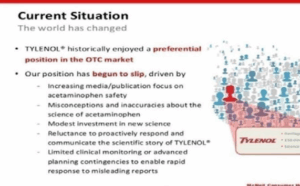
In contrast slides to this characterization of science, in communications these days to their workforce, or a friendly audience, companies will inevitably say that readers have only been exposed to one take on the science. To adapt Kellyanne Conway’s immortal 2017 phrase, they are not been given our ‘alternative science’.
For companies, science is about a media battle rather than a scientific process.
Tylenol and acetaminophen are available over the counter (OTC). They constitute the most commonly taken drug in pregnancy in part because of messaging that paints them as the only safe analgesic to take in pregnancy. They were once billed as anti-inflammatory but it is now accepted they are not anti-inflammatory. They are still billed as being anti-pyretic (fever reducing) which has some truth to it but no more than cold sponging or showering.
Their analgesic credentials are under fire. In my opinion, like SSRIs, Tylenol has analgesic properties for some of us but not all of us, which means that the average analgesic finding in clinical trials may look minimal or debatable. Some of us know the drug works for us. Some know it doesn’t work of us. Should the roughly half of us who know it doesn’t work for us be told that the only thing we can take is Tylenol – acetaminophen?
Pharmaceutical companies view science as there to defend the brand. Company RCTs are designed to get a license and establish market positions – not to inform clinical practice or to help us understand ourselves or the universe. These ‘trials’ are commercial rather than scientific exercises. The ‘science’ is used in much the way it might be used in adverts for Washing Powders.
It also used in Doubt is our Product strategies along with False Balance Strategies. Doubt is our Product is well-known from company efforts to manage the debate around smoking and lung cancer.
False Balance is the mirror image of Doubt is our Product. In 2010, Brian Cox a physicist in a BBC program debunked horoscopes and complaints were lodged with the BBC. In response to the complaints Cox wrote:
“I apologise to the astrology community for not making myself clear. I should have said that this new age drivel is undermining the very fabric of our civilisation.”
Groups like Sense about Science – see multiple Sense about Science posts on DH – appear to have been set up to encourage – among other things – medical organizations and regulators to agree that once an RCT has shown a benefit and no statistically significant adverse effects that it would be False Balance to publish any Case Reports of Adverse Events on a treatment.
See War on Science and War on Civilization.
Pregnancy is fertile ground for companies. Unlike most other harms happening to us, no injury can be obviously seen happening to an infant and there may be a considerable length of time between a potentially harmful event and evidence of harmful consequences.
This opens a door for companies to claim that multiple other factors have confounded simple claims linking their drug to the problem.
It is relatively simple to fish around for confounders and with statistical sleights of hand create a statistical morass. Few doctors, female or male, or women contemplating a pregnancy will be able to tell with confidence which Cup the Coin is under and most will leave it to ‘experts’ – who in fact are no better placed to tell. The experts, and the rest of us, are more likely to figure there must be a valid point here if the article denying a link has a appeared in a ‘good’ journal – which is why companies preferentially colonize good journals rather than hide in the shadows.
Depression Rating Scales, like the Ham-D for instance, are essentially Quality of Life scales on which women who are living in poverty, isolated from a supportive network, under severe stress or otherwise disadvantaged will all have much higher ‘depression’ scores than more fortunate women – without being depressed.
Before the advent of antidepressants, depression was much less common. Women on the ‘verge of nervous breakdowns’ were viewed as anxious rather than depressed. A woman had to clearly have a severe affective disorder unlinked to social stressors to be diagnosed as depressed and the diagnosis was made by a judgement call not by rating scale. Back then, there was no evidence these untreated depressions caused neurodevelopmental delay or birth defects. But now the kitchen sink can be thrown at any claims linking an antidepressant (or Tylenol) to birth defects.
Slide
A naming names slide is not fair.
It is well known that companies have advisory boards and route their marketing through key opinion leaders (KOLs). I have been on company advisory boards. I may have been viewed as a KOL – I was certainly invited to speak at company sponsored meetings. This has left me well placed to offer a view that advisory boards with their meals in lush restaurants and stays in the best hotels are more ways to make friends for the company, profile potentially problematic folk or generally make it hard to raise concerns about company products.
Marketing departments only listen closely to one or two advisors – they don’t do things by committee.
Advisory board members and KOLs are useful links to journals and to have as authors on articles giving the impression these independent articles from authoritative figures whose (ghostwritten) views need taking seriously.
As senior figures in professional bodies, like the American College of Obstetricians or Gynecologists (ACOG) or the Society of Maternal and Fetal Medicine (SMFM), they are also well-placed to suggest a position paper on controversies – such as Tylenol or SSRI use in pregnancy. When the professional body agrees, the KOL will offer to draft one, which will be reasonable enough to be approved by a committee, especially one convened in the absence of members of the awkward squad.
Position papers or Guidance are then published and all of a sudden it will look like all 60,000 members of ACOG agree on the absolute safety of Tylenol or SSRIs in pregnancy and of course on the need to stop alarming women.
This partnership image showing the logos of organizations featuring in a company distribution channel needs no comment. Gary Schwitzer used the ACOG and SMFM logos to illustrate his Stacking the Deck post.
There are a host more logos in this slide from women’s organizations to Autism organizations (ASAN)
and other professional bodies like the American Academy of Pediatrics.
Bob Whitaker and others regularly mention the Guild interest of bodies like the American Psychiatric Association (APA) giving the impression that these bodies rather than Pharma are the dominant players when it comes to shaping healthcare. The slide above along with the one below convey the impression that these professional bodies are bit players, no more substantial than the patient bodies Pharma set up.
These final slides illustrate elements of company modus operandi. As outlined in Back to the Future of Personal Care, what we call Big Pharma is perhaps better called Big Propaganda.
Companies claim to be concerned about Science and encourage doctors (HCPs these days) and the rest of us to Follow the Science, when they mean follow our alternative science. The slide above shows that articles have been written – compendious articles with distinguished names – that will be brought along to any conversation with partners.
It would be a remarkable partner who would be able to challenge this material – even though some of these articles got rejected serially on peer review. Remarkable not because the articles are full of genuine science but because aim at confounding with statistical non-sense.
Companies have no interest to contribute genuinely to establishing facts. Their concern is to gauge how well placed they are to prevail in legal actions – taking into account their ability to hire the best lawyers and experts and abilities to scare any HCPs from daring to suggest the Emperor’s outfit might not be quite perfect.
So much are companies in control of these meetings with partners that as the Health News Review post ends by pointing out, there is almost nothing FDA can do that companies can’t turn to their advantage and our disadvantage.
Having made these points, consider this. While birth defects and neurodevelopmental delay pose challenges for professionals and the rest of us in terms of establishing a link to a treatment, as mentioned at the FDA July 21st Panel meeting, both Tylenol and SSRIs act on the serotonin system and mute sensory input. Sensory input is the major driver of brain development in utero and early infant life.
Muting sensory input is the core action these drugs have. This muting may be useful to some of us in later life. Biology is first of all about function. Neurotransmitters may play a part in delivering a function but once born we find ways to ensure we can function even when we are missing arms – if I have been damaged by thalidomide and want to play the piano I may do so with my toes.
Against this backdrop, step back from confounding and neurotransmitter biobabble for a moment and ask how much sense does it make to turn down or off the sensory input that drives brain development?
This point is not aimed at casting SSRIs or Tylenol into outer darkness. Agents that inhibit important functions in utero can often contribute in surprising ways later in life – rather like isotretinoin (Accutane), SSRIs for instance have anti-cancer properties.
The point is that this is such a dangerous thing to do, how come we end up with studies finding the obvious consequences and others claiming there is no evidence for any problems – except for valproate (which is beyond saving) which these other studies neglect to mention shares epigenomic and other effects with Tylenol.
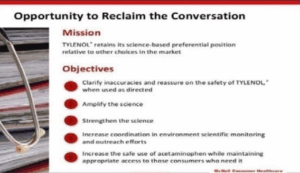
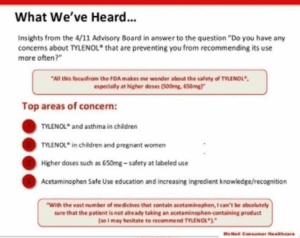
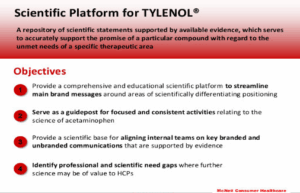
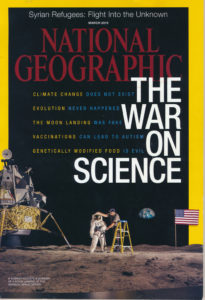
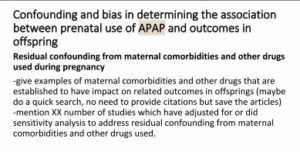
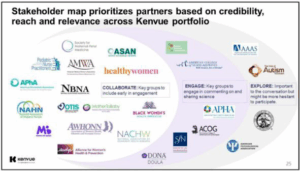
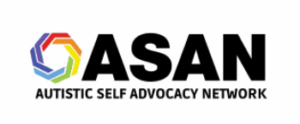

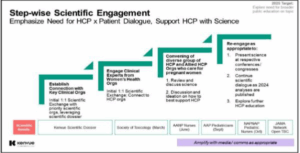
Parsnip, Bernie, rattling his cage, what does ne know about Partnerships in Healthcare or Tylenol in pregnancy?
Why is The Guardian spreading this bunkum..
Jr does not just reject vaccines. He rejects science and must step down
Story by Bernie Sanders • 54m
https://www.msn.com/en-gb/health/other/rfk-jr-does-not-just-reject-vaccines-he-rejects-science-and-must-step-down/
Today, Kennedy is making it harder for people to get vaccines. Tomorrow, what will it be? Will he tell doctors they don’t need to wash their hands before surgery? Will he tell hospitals that they don’t need to sterilize their scalpels and other medical equipment?
The American people need a secretary of HHS who will listen to scientists and doctors, and not conspiracy theorists.
We need a secretary of HHS who will listen to medical experts who may disagree with him, not fire them summarily.
Bottom line: we need an HHS secretary who will not engage in a war on science and the truth itself.
Secretary Kennedy must step down.
Bernie Sanders is a US senator, and ranking member of the health, education, labor and pensions committee. He represents the state of Vermont and is the longest-serving independent in the history of Congress
Bernie Sanders is such an excitable clod, he has no idea what he is talking about. I hesitate to say semi-literate, as that would be rude. Robert and Marty have zeroed in on certain vaccinations and drugs that certainly need exploration: RSV, SSRIs and ‘an HHS (Health and Human Services ) statement that it was reviewing the use of Tylenol in Pregnancy and possible links to Autism.’
Secretary Kennedy @SecKennedy Sep 10
We’re getting the politics out of the CDC and returning it to a science-based agency.
Secretary Kennedy@SecKennedy Sep 9
Under this administration, vaccine injuries will be reported and studied. Individuals who suffer them will not be denied, marginalized, vilified or gaslit. They will be welcomed and we will learn everything that we can about them so that we can improve the safety of these products.
Grown-up talk needed..
Annie’s MSN link above doesn’t work but it refers to this Guardian article by Bernie S
RFK Jr does not just reject vaccines. He rejects science and must step down
Bernie Sanders
Kennedy is unfit to be our nation’s leading public health official because he rejects the fundamental principles of modern science Fri 12 Sep 2025 16.14 CEST
Since taking office, Robert F Kennedy Jr, the secretary of the health and human services department (HHS), has undermined vaccines at every turn. He has dismissed the entire Centers for Disease Control and Prevention (CDC) vaccine advisory panel, narrowed access to life-saving Covid-19 vaccines, filled scientific advisory boards with conspiracy theorists and fired the newly appointed CDC director for refusing to rubber-stamp his actions.
But his rejection of vaccines is only part of the problem. Secretary Kennedy is unfit to be our nation’s leading public health official because he rejects the fundamental principles of modern science.
For generations, doctors have agreed that germs – like bacteria or viruses – cause infectious diseases.
In the 1850s, John Snow, known as the father of epidemiology, traced a cholera outbreak in London to water contaminated with human waste – not the “bad air”, or so-called miasma, that many at that time believed to be the cause.
In the 1880s, Louis Pasteur, the French chemist, in a controlled experiment, injected one group of sheep with an anthrax vaccine while another group went without it. Then he injected all of the sheep with anthrax bacteria. The vaccinated sheep survived, the unvaccinated did not.
The germ theory led to a revolution in public health and medicine which, over the years, has saved tens of millions of lives.
Just a few examples.
At a time when many women were dying during childbirth at hospitals, Dr Ignaz Semmelweis found that handwashing by doctors saved lives.
Joseph Lister showed that sterilizing medical equipment before surgery prevented needless deaths.
Florence Nightingale, considered the mother of modern nursing, substantially improved hygiene at hospitals and made healthcare much safer for patients.
Pasteur made the food we eat and the milk we drink safer through a process of heating called pasteurization.
And these are just a few examples.
Yet, incredibly, in the year 2025, we now have a secretary of HHS who has cast doubt and aspersions on the very concept of the germ theory – the very foundation of modern medicine for over a century.
In his book The Real Anthony Fauci, Kennedy absurdly claims that the central tenet behind the germ theory “is simply untrue”. Vaccines are not, Kennedy falsely asserts, responsible for the massive decline in deaths from infectious diseases. Instead, Kennedy falsely proclaims that “science actually gives the honor of having vanquished disease mortalities to sanitation and nutrition”.
Kennedy’s rejection of science is endangering the lives of millions of children in the United States
Yes. No one disputes that proper sanitation, a nutritious diet and exercise can lead to healthier lives. But no credible scientist or doctor believes that alone makes a person immune from polio, measles, mumps, Covid, HIV/Aids and other infectious diseases. Otherwise healthy people can become sick, hospitalized or even die from these and other terrible diseases.
Sadly, Kennedy’s dangerous rejection of well-established science is behind his wild conspiracy theories and misinformation campaigns.
It’s what led to Kennedy’s false assertion that “there is no vaccine that is safe and effective” despite peer-reviewed scientific studies finding that vaccines have saved more than 150 million lives and reduced infant deaths by 40% in the past 50 years.
It’s behind Kennedy’s bogus claim that the polio vaccine “killed many, many, many, many, many more people than polio ever did”, even though the scientific data has shown that the polio vaccine has saved 1.5 million lives and prevented about 20 million people from becoming paralyzed since 1988.
It undergirds his history of promoting the ridiculous idea that HIV does not cause Aids, despite rigorous studies finding the exact opposite. This type of outrageous HIV/Aids denialism is widely believed to have caused the deaths of at least 330,000 people in South Africa who did not receive the life-saving medicine they needed.
It’s what led him to say that the Covid vaccine was the “deadliest vaccine ever made”, that vaccines cause autism, and that the hepatitis B vaccine doesn’t work and should only be used for “prostitutes” and “promiscuous gay men” – lies that have been thoroughly debunked by scientific data and the medical community.
Frighteningly, it’s what caused Kennedy to say: “I see somebody on a hiking trail carrying a little baby and I say to him, ‘Better not get him vaccinated.’ And he heard that from me. If he hears it from 10 other people, maybe he won’t do it.”
As a private citizen, Kennedy is entitled to his views, no matter how misguided they may be.
If Kennedy would like to swim in water contaminated by raw sewage and fecal matter, as he has done recently in Washington DC’s Rock Creek Park, he is free to do that.
But as our nation’s top health official, Secretary Kennedy’s rejection of science and the actions he has taken as a result of his bizarre ideology is endangering the lives of millions of children in the United States and throughout the world.
Today, Kennedy is making it harder for people to get vaccines. Tomorrow, what will it be? Will he tell doctors they don’t need to wash their hands before surgery? Will he tell hospitals that they don’t need to sterilize their scalpels and other medical equipment?
The American people need a secretary of HHS who will listen to scientists and doctors, and not conspiracy theorists.
We need a secretary of HHS who will listen to medical experts who may disagree with him, not fire them summarily.
Bottom line: we need an HHS secretary who will not engage in a war on science and the truth itself.
Secretary Kennedy must step down.
• Bernie Sanders is a US senator, and ranking member of the health, education, labor and pensions committee. He represents the state of Vermont and is the longest-serving independent in the history of Congress
Bernie’s articles gets some things wrong. Semmelweiss’ claim was rejected by the leading scientists of the day and he had a nervous breakdown and ended his life in a mental asylum.
One of the celebrated aphorisms about medicine is that The Art of Medicine involves bringing good out of the use of a poison. Would Bernie think it reasonable to describe poisons as safe and effective?
I have been saying for a long time that wonderful though Bernie is he gets the pharmaceutical industry entirely wrong – he works for them in essence by only campaigning on the issue of drug pricing which is a recipe for us taking more and more pharmaceuticals a process that has led to polypharmacy, falling life expectancies, more hospitalizations and a badly impaired quality of life.
I hope for all our sakes Bernie is on few or none of the meds that he is worried RFK is trying to rationalize
David
Should Johnson & Johnson Be Helping to Fund the World Conference of Science Journalists?
By Michael Schulson 08.17.2017
This October, 1,200 science journalists will gather in San Francisco for the World Conference of Science Journalists. Their experience there will be underwritten by foundations, universities, media organizations — and pharmaceutical companies.
The WCSJ’s lead sponsor this year is pharma giant Johnson & Johnson, which contributed at least $400,000 to the conference. AstraZeneca, Bayer, and Sanofi each gave another $50,000. Taken together, that equals more than 20 percent of the event’s projected $2.5 million budget. The consumer genomics and biotechnology company, 23andMe, chipped in $50,000.
As a general rule, journalists aren’t allowed to take money from the people, organizations, and companies that they cover. But as journalism organizations rely more and more on corporate sponsors to fill out their conference budgets, they are opening up new avenues for companies to potentially influence science journalists, however indirectly. And along the way, they’ve created new pitfalls for science writers trying to avoid conflicts of interest.
Those dilemmas are exemplified by this year’s WCSJ, which has relied on Johnson & Johnson funding almost from the start. The annual conference rotates from country to country, and when two American organizations, the Council for the Advancement of Science Writing and the National Association of Science Writers, decided in 2014 that they wanted to make a bid to host the 2017 event, they knew they’d need to show that they could cover the sizable price tag. So CASW approached Johnson & Johnson.
Rosalind Reid, the executive director of CASW, told Undark that the organization has had a “very long relationship” with the company. “For various reasons, they have developed similar relationships with lots of different science journalist organizations, and it was an obvious relationship to bring forward in support of the conference,” Reid said. “They’re very respectful of the guidelines of science writing organizations, so it’s not challenging to come up with a no strings, arms-length arrangement with them.”
Sponsors are listed clearly and prominently on the conference website. And Reid stressed that, with the exception of separate, sponsored side events, none of the WCSJ’s corporate underwriters have any say in the conference’s programming.
Seema Kumar, the Johnson & Johnson representative responsible for the company’s sponsorship of the WCSJ and other science journalism events, said that she had not offered any specific requests or opinions about the conference’s content. She also rejected any suggestion that Johnson & Johnson stood to gain, at least directly, from its involvement in the conference. “To be honest with you, there is no real quote-unquote benefit other than it being corporate social responsibility,” Kumar told Undark.
Deborah Blum, the publisher of Undark and the program chair for the skills and training section of the conference, said that after the Johnson & Johnson grant had been announced, she was asked by the company to join Kumar and other J&J representatives for a sit-down meeting where possible speakers and topics for the event — including the importance of pharmaceutical research — were suggested. “We didn’t use any of that in my part of the program,” Blum said, “and I was not approached or pressured on that topic again.”
The company is hosting a sponsored field trip on the last day of the conference to its own healthcare incubator known as JLABS, and Kumar and a consultant do stay in regular contact with other conference organizers. Kumar also said that Johnson & Johnson did respond to general calls made by the event’s organizers for San Francisco area resources and scientist speakers, though she added that none of the company’s suggestions ended up being selected.
Still, some journalists might have reason to be concerned about particular WCSJ sponsors, including Johnson & Johnson. The company is currently being sued by multiple states, which allege that Johnson & Johnson and a subsidiary pursued marketing and sales strategies that drove the opioid epidemic. And 23andMe has sparked controversy for flouting FDA regulations and challenging consumer privacy standards.
The Association of Healthcare Journalists, which is overseeing a track at the conference, did all of its fundraising separately because it was not comfortable with the WCSJ’s sponsorship decisions.
MIT Technology Review senior editor for biomedicine Antonio Regalado, who received a travel reimbursement to attend world conference, said that, after reflecting more on the sponsorship model, he’s now thinking of giving that money back. “Hard to work up a lather if JnJ is only paying 10 percent of conference cost,” he wrote in an email to Undark. (The actual percentage is higher.) “Still, on a typical plane fare/hotel/conference pass 10 percent might be worth $100 to $200, which is more than the value of a coffee mug or a cash gift you’d accept, right?”
(Full disclosure: some members of Undark’s staff will be among the conference attendees, although the magazine is paying for its own travel and accommodations.)
The WCSJ case is far from an isolated example. The European Conference of Science Journalists, held in Copenhagen in June, got funding from Johnson & Johnson, too, as well as a major gift from the philanthropic wing of the pharmaceutical company Novo Nordisk. The National Press Foundation has also recently offered science journalism workshops underwritten by Monsanto and DuPont Pioneer.
In July, HealthNewsReview reported that the prestigious Poynter Institute had hosted an all-expenses-paid workshop on science fact-checking that was underwritten by the Foundation for Advancing Alcohol Responsibility, an alcohol industry nonprofit. And the investigative reporter Paul Thacker has recently reported on journalism workshops that were put together by Coca-Cola and by the agro-tech industry.
Over the past two months, HealthNewsReview has taken a leading role in covering this kind of funding, with a special series on conflicts of interest. “For God’s sake, with all of the conflict of interest questions swirling around the current administration in Washington, and then with the all of the cheap shots that the current administration takes at journalism, you would think that of all times journalism right now would do everything that it could to wear steel underwear and to ensure that they were pure,” said Gary Schwitzer, the founder and publisher of HNR, in an interview with Undark. “And we just seem to be going in a different direction.”
Event organizers respond that this funding frees them up to provide better programming. They also argue that money from foundations and other philanthropies — the other primary funding stream for such events — often comes with restrictions and expectations that the donor can help to plan the event. “If you want to do these events in the current environment, where funding is — where you know where the funding is — then you have to make these choices,” said Reid, who points out that the WCSJ is costly, in part, because of the financial support it offers to students and journalists from the developing world.
I asked Kelly McBride, a media ethicist and Poynter vice president, what the organization would look like if they stopped taking money from corporate sources. “Could we do it? Sure. Would we reach half the journalists that we reach now, or maybe even only a third of the journalists that we reach now? Yeah, that’s absolutely what would happen,” she said. Foundation funding comes with its own problems, she argued, because “you are subject to the whims of the foundations you work for.”
McBride defended the choice to take money from an alcohol industry organization for its fact-checking workshop. “An organization within the alcohol industry that has a really specific agenda — that’s different,” she said. “It’s not the alcohol industry writ large.”
“We think journalists are pretty damn smart,” she added, “which is why we are transparent as we can possibly be about the funding.”
When Undark contacted two journalists who had served on the faculty at the Poynter science fact-checking workshop, both admitted that they had not realized at first where the money was coming from, even though the Foundation for Advancing Alcohol Responsibility (FAAR) was listed in the invitation email.
“I attended the conference assuming that because it was being held by Poynter — a journalism organization — it did not present any conflict of interest for me,” Usha Lee McFarling, the West Coast correspondent for STAT, wrote in an email to Undark, adding, “this is a good reminder for me to check the details closely before I agree to participate in events even when housed at journalism conferences or by journalism organizations.”
While maintaining that the HealthNewsReview critique of the FAAR event was “unfair,” McBride announced in a blog post published Thursday that Poynter had updated and clarified its ethics policy — including its handling of funding from outside sources.
In our interview, Reid, the WCSJ organizer, recalled days when publications had more money, and, she said, media organizations didn’t have to hunt so far afield for support. “I came up in those days,” she said. “I wish we still had them.”
But Schwitzer, for one, remained skeptical that there weren’t other sources of money available. “They’re out there,” he said. “And until you show me that you’ve exhausted all those other options, I’m going to keep my knife sharpened in addressing you taking industry money.”
Gary Schwitzer is the main player in the linked Health News Review post and I think most people will figure there was something funny about the FDA panel but they can’t put their finger on what.
Perhaps this UnDark piece in which Gary is also a key player along with the Partnerships post may go some way to helping all of us figure out what is going on
D
“For God’s sake, with all of the conflict of interest questions swirling around the current administration in Washington, and then with the all of the cheap shots that the current administration takes at journalism, you would think that of all times journalism right now would do everything that it could to wear steel underwear and to ensure that they were pure,” said Gary Schwitzer, the founder and publisher of HNR, in an interview with Undark. “And we just seem to be going in a different direction.”
https://www.linkedin.com/in/garyschwitzer?original_referer=
About
Helping consumers improve their critical thinking about health care claims. Improving the public dialogue about health care by trying to improve media messages (journalism, public relations, advertising, marketing) about health care interventions.
Specialties: health care/science journalism, media ethics, teaching how to evaluate studies/research results
Honors & Awards
McGovern Award for preeminent contributions to medical communication
American Medical Writers Association
Mar 2014
One of this organization’s highest awards. Past recipients include George Lundberg, John K. Iglehart, Anthony Fauci, Art Caplan, Sherwin Nuland, Jerome Groopman and othe
How patients are harmed by misleading media messages
By CHJ Fellow
Gary Schwitzer
https://centerforhealthjournalism.org/our-work/insights/how-patients-are-harmed-misleading-media-messages
April 19, 2016
No journalist – and certainly no health care journalist – rolls out of bed in the morning and thinks, “How can I go in to work today and screw up and hurt people?” But the harm from misleading media messages about health care – unintentional though it may be – is still very real.
In our podcast series on HealthNewsReview.org, we’ve started to provide a forum for smart patients and patient advocates to tell their own stories about the harm that can occur from inaccurate, imbalanced or incomplete health care media messages.
The sister-in-law of a man with glioblastoma (brain cancer) told how he was jerked around on a roller coaster ride of emotion – first being told of a “breakthrough” drug but then learning that it hadn’t even been tested in humans. It was all because of a shoddy PR news release.
The founder of a rare disease foundation – for primary ciliary dyskinesia – directed her anger at a medical journal, which published an article headline that spread excitement through the patient community – unwarranted excitement in her eyes. She had to temper peoples’ enthusiasm because of what the journal headline – and some subsequent media coverage – did not reveal.
And a woman who has had migraines for 50 years – and who is now a migraine patient advocate and educator – was “pissed off” as she says – by misleading TV news that spread across the country about a “new migraine treatment.”
We’re trying to put a human face and voice to these harms. Each of these episodes involved a relatively simple misstatement or communications glitch that could have been easily prevented, fixed or overcome.
We who write news releases and news stories about health care should keep real people like these folks in mind before we hit “send” or “publish.” If we don’t, we may hurt more people than we help – mislead more than we inform.
(All of our podcasts are archived here. We’ve done profiles of standout health care journalists Christie Aschwanden and John Fauber, and featured interviews with leading researchers such as Drs. Otis Brawley, Laura Esserman and John Ioannidis.)
Gary has/had interesting company, Anthony Fauci and John Ioannidis.
Perhaps the light can be shed on ‘different direction’, and although the Panel’s format was not to everyone’s taste, surely the fact that this Panel happened at all and with knowledgeable and creative types, seemed at the time, to be going in the ‘right direction’ with trying to absolve ‘misleading messages’ ..
The second link in Annie’s comment is to a 2016 post by Gary. It raises questions about whether it is right to be as skeptical of FDA and it is of pharma. A piece published today by Marty Makary suggests it is not – and what might appear to some as an effort by Dr Makary to Stack the Deck does not reflect on what is going on
The FDA’s Overdue Crackdown on Misleading Pharmaceutical Advertisements
Martin A. Makary, MD, MPH1
JAMA Published Online: September 12, 2025 doi: 10.1001/jama.2025.18197
Direct-to-consumer pharmaceutical advertising has evolved into a public health crisis demanding immediate action by the US Food and Drug Administration (FDA). For nearly 3 decades, pharmaceutical companies have exploited weak enforcement, flooding US consumers with promotional content that is often misleading.
The US is one of only 2 countries worldwide that permits direct-to-consumer pharmaceutical advertising. A 1997 regulatory change by the FDA made these advertisements more widespread by relaxing restrictions, unleashing a marketing free-for-all. The consequences of this regulatory failure have been significant. Within a decade of this regulatory change, pharmaceutical advertising spending increased by nearly 800%, many creating a misleading impression.1 The patient-doctor relationship has been distorted, creating increased demand for medications regardless of clinical appropriateness.
Under the Federal Food, Drug, and Cosmetic Act, the FDA is charged with regulating all prescription drug ads to ensure they represent a “fair balance” of risks and benefits and do not create a “misleading impression.” The agency is now transitioning from reactive, complaint-driven oversight to proactive monitoring of pharmaceutical advertising across all media platforms.
The FDA’s enforcement trajectory demonstrates a regulatory collapse over the past 25 years. In the late 1990s, the agency sent hundreds of enforcement letters annually to companies violating advertising regulations. By 2023, this number had plummeted to just 1 letter. In 2024, the FDA did not send a single enforcement letter.
Misleading impressions come straight from the ads themselves: glossy scenes of patients laughing, singing, and dancing dominate the screen, while fine print races past with warnings about seizures, addiction, or even death. That is not fair balance—it is a distraction by design.
We are taking action to correct decades of regulatory failure. The FDA has initiated enforcement action, delivering approximately 100 cease-and-desist letters targeting the most severe regulatory violations. In addition, we have issued thousands of letters warning companies and establishing clear expectations for immediate compliance with existing regulations.
The Staggering Cost of Regulatory Failure
The numbers tell a sobering story about the economic consequences of inadequate oversight. A 2023 study demonstrates that direct-to-consumer advertising drove approximately 31% of the increase in US drug spending since 1997, when the FDA relaxed ad restrictions.2 Research reveals a troubling pattern: drugs with lower added clinical benefit receive significantly higher proportions of direct-to-consumer advertising spending—an absolute 14.3% increase compared with drugs with high clinical benefit.3 Companies are spending billions creating increased demand for medications, while patients face a financial burden from unnecessary prescriptions.
The impact of drug advertising extends beyond economics into the core of medical practice, as evidence-based prescribing protocols are being replaced by marketing-induced patient demand. A 2021 systematic review concluded that direct-to-consumer advertising increases overall prescription requests, boosts the likelihood that a clinician will prescribe, and increases rates of inappropriate use, often leading physicians to prescribe medications requested by patients even when they as prescribers question the clinical appropriateness.4
The prevalence of marketing-induced patient demand stems from the misplaced priorities of the pharmaceutical industry. It is well established that large pharmaceutical companies consistently allocate more resources to advertising than to research and development, prioritizing demand creation over therapeutic innovation.
Eliminating the Adequate Provision Loophole
Since 1997, pharmaceutical companies have exploited regulatory language known as the adequate provision to minimize risk disclosure in advertisements. The adequate provision lets sponsors recite a vague “major-risk statement” regarding the risks associated with the use of a medication and then point viewers to a website, toll-free number, or print insert for more complete information. Because major is never defined, companies choose what to include or omit: in a review of 97 prime-time television drug advertisements, only 33% named all contraindications and 53% listed all warnings or precautions—even though each ad technically met adequate provision requirements.5
Viewing safety information should not be a scavenger hunt. When companies choose to advertise prescription medications to the general public, they must present risks and benefits with equal prominence and clarity. The FDA is initiating rulemaking to close the adequate provision loophole and increasing our enforcement approach to existing regulations across all advertising channels.
Addressing Paid Social Media Influencers
Pharmaceutical advertising on social media has exploded in recent years. One analysis found that more than 1800 social media advertisements from 15 telehealth companies promoted prescription drugs without warnings or risks, including at least 800 advertisements promoting controlled substances.6
Drug advertisements on social media are often presented as entertainment, blurring the boundaries between editorial content, user-generated media, and pharmaceutical advertising. Consumers are encountering medical claims in casual, immersive formats that lack clear promotional identification, making it difficult to distinguish between evidence-based information and promotional material.
A 2024 review revealed that while 100% of pharmaceutical social media posts highlighted drug benefits, only 33% mentioned potential harms.7 Moreover, 88% of advertisements for top-selling drugs come from actors ignoring fair balance rules.8 This represents a fundamental violation of fair balance requirements that has gone unchecked for too long.
Addressing Online Pharmacy Ads
Equally brazen, online pharmacies are advertising drugs with only upsides mentioned, contributing to America’s culture of overreliance on pharmaceuticals for health. This breach of FDA regulation was most overt earlier this year when Hims & Hers ran a Super Bowl ad highlighting the benefits of glucagon-like peptide-1 drugs without any mention of side effects or disclaimers.
Restoring Trust in Medical Decision-Making
The FDA is not banning prescription drug advertisements—the First Amendment prohibits such action. But the First Amendment does not protect deceptive and misleading advertisements that have flooded the media, strained the health care system, and driven unnecessary spending that could have been avoided with proper regulatory oversight.
The FDA’s new approach incorporates our guiding principles of gold-standard science and common sense. We believe decisions about prescription medications belong to patients and their doctors—not the advertising industry. With rigorous oversight of pharmaceutical marketing and enforcing fair balance requirements, we can help restore public trust.
The regulatory neglect of the past 25 years ends now. Americans deserve better than a system in which pharmaceutical companies exploit regulatory loopholes while patients are misled and health care costs escalate. We will no longer tolerate deceptive practices that distort the patient-doctor relationship and waste billions of dollars in health care resources that could be better spent lowering drug prices for Americans.
Article Information
Corresponding Author: Martin A. Makary, MD, MPH, Food and Drug Administration, Office of the Commissioner, Bldg 1, Ste 200, Silver Spring, MD 20993 (CommissionersOffice@fda.hhs.gov).
Published Online: September 12, 2025. doi:10.1001/jama.2025.18197
Conflict of Interest Disclosures: Dr Makary reported serving as a past board member of Harrow Inc and receiving book royalties from Bloomsbury Publishing outside the submitted work.
References
1. Ross JS, Kravitz RL. Direct-to-consumer television advertising: time to turn off the tube? J Gen Intern Med. 2013;28(7):862-864. doi:10.1007/s11606-013-2424-2PubMedGoogle ScholarCrossref
2. Alpert A, Lakdawalla D, Sood N. Prescription drug advertising and drug utilization: the role of Medicare Part D. J Public Econ. 2023;221:104860. doi:10.1016/j.jpubeco.2023.104860PubMedGoogle ScholarCrossref
3. DiStefano MJ, Markell JM, Doherty CC, Alexander GC, Anderson GF. Association between drug characteristics and manufacturer spending on direct-to-consumer advertising. JAMA. 2023;329(5):386-392. doi:10.1001/jama.2022.23968
ArticlePubMedGoogle ScholarCrossref
4. Franquiz MJ, McGuire AL. Direct-to-consumer drug advertisement and prescribing practices: evidence review and practical guidance for clinicians. J Gen Intern Med. 2021;36(5):1390-1394. doi:10.1007/s11606-020-06218-xPubMedGoogle ScholarCrossref
5. Klara K, Kim J, Ross JS. Direct-to-consumer broadcast advertisements for pharmaceuticals: off-label promotion and adherence to FDA guidelines. J Gen Intern Med. 2018;33(5):651-658. doi:10.1007/s11606-017-4274-9PubMedGoogle ScholarCrossref
6. Safdar K. Lawmakers call for oversight of telehealth ads promoting drugs. Wall Street Journal. January 19, 2023. Accessed September 5, 2025. https://www.wsj.com/articles/lawmakers-call-for-oversight-of-telehealth-ads-promoting-drugs
7. Tyrawski J, DeAndrea DC. Pharmaceutical companies and their drugs on social media: a content analysis of drug information on popular social media sites. J Med Internet Res. 2015;17(6):e130. doi:10.2196/jmir.4357PubMedGoogle ScholarCrossref
If we had tv advertising here, with pharmaceutical products, on every five minutes, I would feel physically sick. Come and get your Paxil and live your dreams.
What else is the mainstream media but an advertising conduit for pharmaceutical products. The Daily Mail is full of ridiculous headlines offering magic cures. When they do publish an article by someone like Katinka Newman, you can guarantee, the next day, will be an article, how antidepressants saved my life.
Then there is the mental health field full of doctors, psychiatrists, nurses, psychotherapists, counsellors, etc. You can guarantee your bottom dollar that medications will be dished out willy nilly for anxiety and depression, personality disorders, OCD, ADHD, etc. all contained in hundreds of disorders in the DSM.
Then there is The Samaritans, and other agencies, who don’t ask about medications.
When I was hauled off to the Gulag, I had visited our Indian Doctor, as a friend, a wise counsel. What I didn’t expect was this person, tapping out in front of me , with two fingers, a letter to a local psychiatrist, more or less saying he was not equipped to deal with ‘women’s problems’. Oh, how they fail you.
From that moment on, I was gaslit, persecuted, rubbished, and became a non-person.
You can’t have it all ways: FDA, Pharma, Medical Journalists, Medical Journals, CDC, Partnerships in Healthcare, RCP/APA, et al.
Each bit of the bloated system needs a complete overhaul. Bit by bit. Little by little. One step at a time. Then Robert and Marty might get somewhere.
The Opposition is loud and noisy, pushy and obstructive, and it doesn’t make for an easy ride ..
What always perplexes me is why anyone believes the sloppily written, these days likely AI produced, boilerplate propaganda pumped out by the Partnership in reaction to scientific evidence of risks to human life? I suppose part of the answer is a large part of its audience is in-house. But not everyone.
It’s always the same old – taking Tylenol coverage as an example – but bolt on any product or brand name :
Tylenol maker Kenvue denied any causal link between the drug and autism.
Nothing is more important to us than the health and safety of the people who use our products
Neurodevelopmental disorders, in particular, are multifactorial and very difficult to associate with a singular cause
Many benefits of acetaminophen, which is safe and one of the few options pregnant people have for pain relief.”
Tylenol is one of our first line treatments in pregnancy for pain and for fevers .. there are documented risks of maternal fevers.’
‘the science behind this theory is not settled.’
‘The studies that do show an association have serious flaws and limitations as they do not control for confounding variables’
In search of understanding I dug out a piece that seemed relevant – The Russian “Firehose of Falsehood” Propaganda Model -Why It Might Work and Options to Counter it.’
https://www.rand.org/pubs/perspectives/PE198.html
It’s not an airy-fairy piece – grounded, based on experimental psychology truisms, and lesson 101 in the Partnership Firehose of Falsehood Model. A few of the many practical tips:
‘First impressions are very resilient: An individual is more likely to accept the first information received on a topic and then favour this information when faced with conflicting messages. Furthermore, repetition leads to familiarity, and familiarity leads to acceptance.’
‘The “illusory truth effect” whereby people rate statements as more truthful, valid, and believable when they have encountered those statements previously than when they are new statements.’
‘When information volume is low, recipients tend to favour experts, but when information volume is high, recipients tend to favour information from other users’.
But what really caught my attention was the section on how to counter propaganda:
‘Don’t expect to counter Russia’s firehose of falsehood with the squirt gun of truth. Instead, put raincoats on those at whom the firehose is aimed.’
Essentially, don’t argue directly and try and force a retraction. Prime your audience with critical information in advance of propaganda to reframe it. Consider the effects/actions the propaganda is designed to drive – and tackle them, not the propaganda itself.
It suddenly occurred to me – a bit slow on the uptake at times – that this is precisely what the RFKJr led team are doing. Exactly the purpose of the FDA panels. Ofc they aren’t designed as earnest scientific debates. They are counter propagandist moves from the new health regime. And good luck to them – I only wish we had the same in the UK. How can we benefit from the backwash?
As I’ve said elsewhere – the original announcement I saw on X was that RFKJr was planning to ban above the line advertising for rx drugs entirely. But the latest decision to allow it (for constitutional reasons I don’t understand) to continue, with the proviso that all adverse effects are explicitly named is a real propaganda coup. Far more powerful than silence.
Harriet
Your points here are fascinating – especially as it might apply here.
I’m not sure how the following thought might fit in. I spend time in Eastern Europe before the Wall came down and what was clear then was that no Czechs or Poles or Hungarians or Russians believed Russian propaganda. They also didn’t believe the propaganda on our side – that we were much more likely to believe than they were likely to believe theirs.
I guess the Russian gun to your head or ship you off to the Gulag forced lip service to their propaganda where our guys were more subtle burying the propaganda in Hollywood movies and in advertising selling the latest fashion aimed at getting us to chase things we deserve because we are worth it – which where health is concerned locates political problems in us.
I don’t know whether Putin is any more sophisticated that Brezhnev was but I am pretty certain the US are a lot more sophisticated now than the were back then – when Norman Mailer was shouting from the rooftops Wake up Guys, we (the US) are just as totalitarian as they (the Russians) are.
Do you think getting everyone to refer to Big Propaganda rather than Big Pharma might inoculate even some of us?
D
My guess – that fits with your Eastern Bloc experience – is that those who survive under oppressive regimes – are a lot smarter at recognising and managing their own reactions to propaganda, than those of us who live under the illusion of personal and political freedom.
The Partnership Firehose of Falsehood – don’t you love that expression – has by sheer force and volume been able to brainwash perfectly sensible folk into believing obvious absurdities. That babies aren’t at risk from the chemicals you ingest during pregnancy – of course they are. That their brain development won’t be affected by chemicals that disrupt sensory signalling – essential to life.
And what’s really disturbing is that, extrapolating from the depth of questions pregnant women were asking about RSV vaccinations for their babies, the majority swallow the propaganda with barely a second thought.
Big Propaganda is the reality. Not so much Big Pharma. And certainly not Big Science. As you said, ‘For companies, science is about a media battle rather than a scientific process.’
I think your idea of exposing and laying carefully aside the obstacles to scientific consensus is a pure thought. But in such a propagandised society is it even possible?
We might find out in Reno if there is anything that is possible
D
Tylenol in pregnancy: a question of safety or control?
RFK Jr. wants to figure out if acetaminophen causes autism. He’s asking the wrong question
https://www.statnews.com/2025/09/16/tylenol-acetaminophen-autism-women-pregnancy-pain/
These are hard questions to answer — and they’re about to get harder, as Health and Human Services Secretary Robert F. Kennedy Jr. has apparently become interested in the idea that Tylenol use in pregnancy might be a cause of autism. A report from HHS to this effect is expected in the coming weeks.
Fugitive Scientist Behind Vaccine and Autism Studies Arrested for Stealing $1 Million From CDC
https://publichealthpolicyjournal.com/fugitive-scientist-behind-vaccine-and-autism-studies-arrested-for-stealing-1-million-from-cdc/
Danish scientist Poul Thorsen, who co-authored influential papers in 2002 and 2003, used to argue against the link between vaccines and autism, was arrested in Germany and may be extradited to the U.S. on charges of stealing nearly $1 million in research money, Breitbart News reported.
Thorsen was listed as a fugitive on the U.S. Office of the Inspector General’s most wanted list for over a decade.
He reportedly was arrested in June following an Interpol Red Notice, a request to international law enforcement to locate and provisionally arrest a wanted person. The U.S. Department of Justice (DOJ) is working with German authorities to extradite him to the U.S., an unnamed DOJ official told Breitbart.
https://www.breitbart.com/health/2025/09/15/exclusive-autism-vaccine-scientist-arrested-germany-cdc/
The arrest is especially significant to the MAHA (Make America Healthy Again) movement because Thorsen, who is also a physician, is one of the authors of a 2003 study considered the “gold standard” in determining there is no link between autism and vaccines containing a preservative called thimerosal.
Safe vaccine advocates have alleged that the study was deceptive and fatally flawed.
“Thorsen has been number one on the Health and Human Services (HHS) most wanted list for the past ten years,” HHS Secretary Robert F. Kennedy Jr. told Breitbart News in an exclusive interview. “I’m grateful to Pam Bondi for working with my agency to make sure he’ll finally be brought to justice.”
“He’s been wanted by the HHS long before I got here,” he said.
I left the immediate SSRI-dabate some years ago, it was hurting my own health.
But I took to ‘twitter’, and followed the more general scepticism towards pharmaceuticals, science and government.
The lies I learned to see through on Paxil/Seroxat, is basically the back bone of all of society.
If it isn’t pharmaceuticals, then it is our food. If it isn’t mercury or biocide, it is supposedly the co2 we exhale and have as generators in green houses.
We silenced the leader of the ‘free world’, as he was a bit to keen on ad-libbing, and we now know it was a deliberate and coordinated action during covid, where we silenced doctors who wanted to cure with re-purposed drugs.
I still come here from time to time, I seek to imagine the SSRI’s will fall.
But the world, and its societies are so backwards, I stand more realistic chance of benefitting if ‘Rutte and Putin’ squares off.
Yes, we know one side of every arguement does not want the truth. But it’s amazing on how many fronts that battle takes place.
The other day I saw a lawyer testify that out of 600 RCT’s on child vaccines, manufacturers had avoided true placebo, in all thinkable ways, in all but 3(!)
If one side need better proof than so, I’m pretty sure the other side is untouchable.
Ove2025